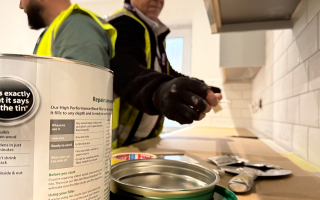
Tri-Service
Comment: Smashing The Islamic State Cash Machine

Article by Christopher Lee, Defence Analyst
A combined onslaught of US Intelligence agencies using electronic and human-gathered intelligence (HUMINT) on the ground in Syria and Iraq has been so good at locating terrorist strong-boxes that within the past twelve months up to $800 million dollars of ISIS cash has been destroyed.
The man in charge of targeting the asset-stripping operation against ISIS strongrooms, US Major General Peter Gerstner (the Operations and Intelligence deputy commander in Iraq) reckons that all this has been done using good information and fewer than 20 airstrikes - one of them on the ISIS banknote depot in Mosul.
Some of this explains recent Intelligence briefings in Washington that Islamic State, the most organised and super-rich terrorist organisation on the streets with assets until last year in excess of $2 billion - is pushed for funds, and partly as a consequence of that is losing support.
There are three aspects here that lead US strategists to think they may be getting ahead of ISIS:
US bombing of ISIS controlled oil fields has reduced income and, given the price of oil, this is something of a double-whammy
Secondly, with fewer funds the volunteer flow that was as high as 2,000 a month this time last year has trickled to 200 a month. Most terrorists are for hire rather than inspired by ideology. ISIS numbers may have dropped by as much as 15%.
Thirdly, ISIS has not been able to cope with success, inasmuch that it has found it hard to administer and command expansion. The move into Afghanistan has a different leadership and may not feel any of these pressures - but they are felt throughout the rest of the ISIS Middle East.
These examples of US success, if they check out, may be one reason why the Italian-led coalition that includes France and the UK wants to get in to Libya. They think that if ISIS is not getting the big wages they once enjoyed then demoralisation should be hammered as soon as possible.
The ISIS contingent in Libya is concentrated on perhaps two coastal towns, Sirte being one of them. There is a school of thought advising the Foreign Office in London that this is not a well organised group and the time is ripe to hit them.
It could be sound advice. It is true also that the British hit-and-run policy means that it is relatively simple for Islamic State to regroup if the Libyan mission cannot take over the vacated territory.
What has all this to do with the bombing of a dozen or so ISIS cashpoints?
The real success story of the US-led forces against ISIS during the past 12 months has been assassination operations against terrorist leaders, plus commercial fields such as oil and bankrolls.
In other words; reduce resources, constantly harass leadership and demoralise manpower. Any commander knows that this is the temporary, but easily actable upon state he needs his enemy in before he sends in the strategic solution.
It could be the battlefield circumstances are changing, and the word is that the assassination target that will pull this together is the head of ISIS, Abu Bakr al-Baghdadi. Talk to General Gerstner and he says that the Intelligence people are not sure where he is.
But talk to the people debriefing special forces and the until recently frustrated electronic Intelligence (ELINT) desks, and some say that if the ISIS finances continue to worsen then al-Baghdadi will break cover - which may just turn out to be the long-term success story from General Gerstner's office.
Christopher Lee can be heard on Sitrep, the only weekly radio programme devoted to discussing the big issues in Defence. It can be heard live on BFBS Radio via DAB or you can download the podcast.
More from Forces.tv: Comment - Libya, Special Forces and Keeping Schtum








